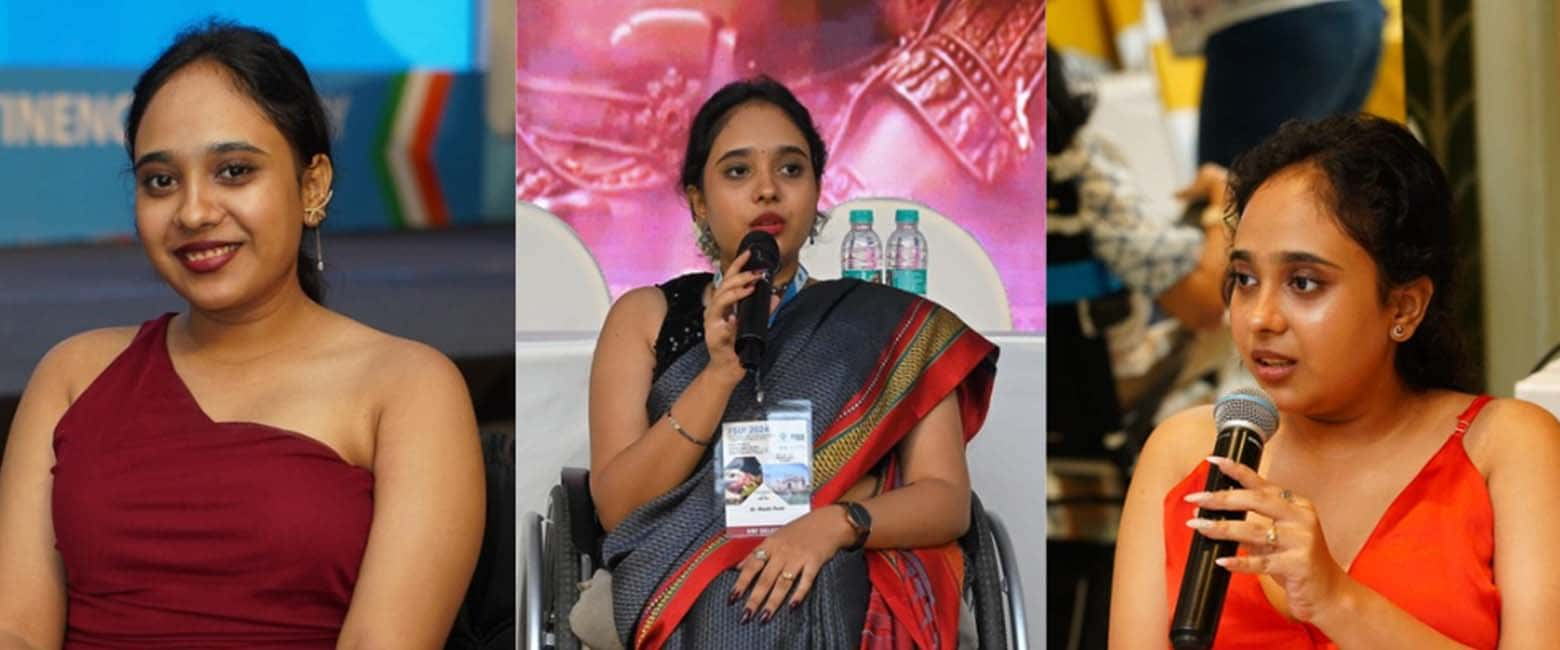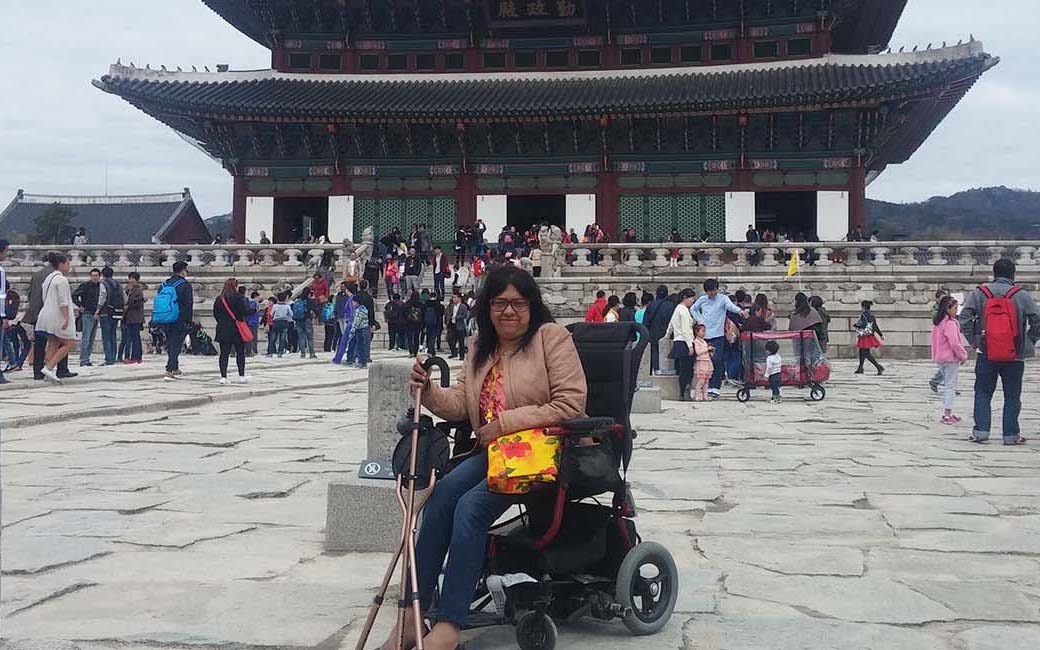Inspiring Journey of a Multi-Talented Wheelchair User
Explore Maahi's achievements and her journey of overcoming challenges and inspiring others.

This interview highlights a multi-talented entrepreneur, cricketer, musician, and dietician who has overcome physical challenges and societal limitations.
Question: You are an entrepreneur, cricketer, musician, dietician, and interested in travelling. Tell me a little bit about yourself.
Answer: I've been playing cricket for a year now, and I'm the Vice-Captain of the Mumbai Wheelchair Cricket Team. I'm a trained classical music singer and recently created a music band with the Spina Bifida Foundation members. I'm actively working for my community and fully engaged in social work. Additionally, I'm studying paramedical science with a specialisation in dietetics.
Question: Tell me one memorable moment you had while playing cricket or performing as a musician.
Answer: In cricket, I'm still a newbie. However, as a musician, this year we went to the Purple Cell in Goa in January. During that time, Rani Kohinoor, also known as Sushant Divgikar, was performing. I requested the manager to let me sing with him, and I got on stage during the ongoing performance. It was so much fun. I waited until the end of the show, then went up, requested the manager, and just started singing with him.
Question: If there's an aspiring musician or athlete who uses a wheelchair, what would be your message to them?
Answer: In our community, disabled people often don't think of doing things on their own because they see their wheelchair or disability as a hurdle. But actually, it can be their strength. Society might initially view it with sympathy, but that sympathy can create opportunities. People are becoming more aware of our situation and more active in working with us. Growth is slow, but it’s happening. I think people should seek out opportunities to do what they love. Once I started working with the foundation, opportunities kept coming. If you take one step forward, more opportunities will follow. You have to be open-minded and aware of things. By working with the foundation, I created opportunities for myself, like forming a band with other Spina Bifida patients. Now we are practising and establishing ourselves.
Question: How do you stay motivated?
Answer: Sometimes I don't feel like myself or even want to continue studying. But there was a person in my life, my grandmother, who was with me since birth and very close to my heart. She passed away last year. I wish she could see me growing and achieving the things I used to talk about with her. She would always smile and tell me that I would succeed. Her memory motivates me. I believe she's watching over me from heaven, and that keeps me going, even when I feel low. Remembering how she fought her battle with cancer is a major source of motivation for me.
Question: Let's talk about the wheelchair situation in India. What do you think are some of the biggest challenges that people in wheelchairs face?
Answer: The biggest challenge in India is that it's not wheelchair-friendly or accessible. Only about 10 to 20% of places are accessible. Even if buildings have lifts, there are often two or three steps to reach the lift. Ramps, if present, are often too steep and not truly accessible. You still need help, which defeats the purpose. Schools and colleges also lack proper accessibility. When I was looking for colleges, many had lifts only to certain floors, and wings of the buildings weren't accessible. I had to choose a college that was somewhat accessible and close to home. Despite having good marks in my 12th and 10th grades and studying science without tuition or coaching, finding a suitable college was challenging. My dream was to pursue MBBS, but the law only allows those with 40 to 70% disability to enter the medical field. I'm 90% disabled according to my certificate, but only my legs are affected; my upper body is fine. The law doesn't consider my capabilities because of my wheelchair.
Question: It’s disheartening to think about how many talented and brilliant people are limited by these rules.
Answer: Exactly. People don't even think about pursuing their dreams because they know it won't work out due to many existing problems. Very few people with locomotive disabilities pursue and complete their education.
Question: Tell me about any positive changes you've seen in society.
Answer: Whenever I go out, people are ready to help. We often think no one will assist us, but that's not true. If you ask politely, people will help. More people in wheelchairs are coming out of their homes now. When we go out, seeing us doing our own thing motivates others.
Conclusion
This interview sheds light on the journey of a multi-talented individual who has overcome numerous challenges and continues to inspire others. Maahi’s experiences highlight the importance of creating opportunities and fostering a supportive environment for people with disabilities.
Related
-

A young warrior
-

How to Promote Inclusivity for People with Spina Bifida
-

Inspiring Change
-

Pammu leads the way!
-

Find Your Inspiration at Mobicrew
-

Embracing Parenthood with Mobility Challenges: A Guide for Parents
-

Triumphing challenges
-

Living life on her own terms
-

Winners on wheels
-

How to Support a Loved One with Spina Bifida: Tips for Family and Friends









